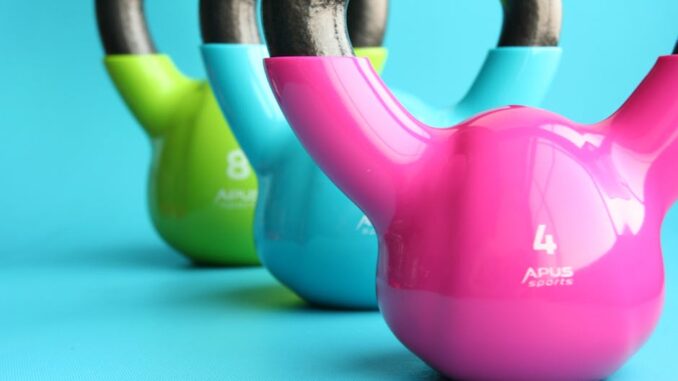
Summary
This pilot study reveals that a single session of moderate-intensity intradialytic aerobic exercise (IDE) can improve blood pressure control and reduce sleepiness after hemodialysis in patients with kidney failure. The research also demonstrates the feasibility of quantifying the proteome in these individuals, opening doors for personalized exercise interventions. This breakthrough offers a non-pharmacological approach to managing hemodialysis side effects and enhancing the quality of care for this vulnerable population.
TrueNAS: the healthcare storage solution thats secure, scalable, and surprisingly affordable.
Main Story
Okay, so let’s talk about something pretty cool I recently read – it’s all about how exercise during dialysis might be a real game-changer for people with kidney failure. I mean, let’s be honest, kidney failure is rough. You know, it means you need hemodialysis, which, while keeping you alive, can bring a whole load of nasty side effects like wild blood pressure swings and constant tiredness. It’s just, well, not ideal.
But, here’s the good news – a pilot study is showing that intradialytic aerobic exercise, or IDE, can help alleviate some of those issues. Think of it, folks, hopping on a stationary bike while getting your treatment!
They had people do some moderate cycling, and guess what? Even one session seemed to make a difference. Blood pressure improved, and that post-dialysis slump? Significantly reduced, as it turns out. And, get this – the study participants didn’t have any negative reactions, which is fantastic news, right? That’s what i call a win-win!
See, that’s crucial, because high blood pressure can lead to some scary heart problems, and who wants to feel like a zombie all day? These findings suggest that IDE could tackle both those things safely. What a concept!
They didn’t stop there either. The researchers actually looked into the participants’ proteomes – you know, the whole shebang of proteins the body makes. Turns out, they could track how these proteins reacted to the exercise. Granted, they didn’t find a direct link between the protein changes and blood pressure in this particular study. That said, it’s opening up exciting possibilities! Imagine if we could figure out exactly which proteins are being affected and design personalized exercise plans! Crazy, huh?
So, yeah, this pilot study is encouraging. However, and this is important, we need bigger studies to see the long term impact and to figure out the best exercise routines. How often? How hard? For how long? That’s still being worked out, and its a bit of a mystery for the time being. Further research will also probably look at how different people respond differently, I’d wager.
On the other hand, it’s easy to see that IDE could become a standard part of dialysis treatment in the future. It’s a non-drug option, and it fits really well with the idea of treating the whole person, not just their illness, if that makes sense. Ultimately, it’s about improving someone’s quality of life.
It offers a real sense of control to people who often feel completely at the mercy of their condition. This could just give them more energy and a bit of a zest for life while going through a really tough time. This study also underscores the potential for personalized care, and the research gives us a glimpse into a future where treatment is tailored to each person’s specific needs. It really is fascinating stuff, and, I don’t know about you, but I’m pretty excited to see what comes next!


The study’s investigation into the proteome response to exercise offers a pathway to personalized exercise plans, potentially optimizing the benefits of intradialytic aerobic exercise for individuals with kidney failure.
That’s a great point! The proteomic analysis is what really grabbed my attention, too. Thinking about personalized exercise plans based on individual protein responses opens up a whole new dimension to patient care. What are your thoughts on how quickly this kind of personalized approach could become a reality?
Editor: MedTechNews.Uk
Thank you to our Sponsor Esdebe – https://esdebe.com
So, you’re saying the most exciting part is people riding bikes while they’re hooked up to a machine filtering their blood? Sounds like a dystopian gym class, not a medical breakthrough.
Ha! It does sound a little sci-fi, doesn’t it? But beyond the image, what’s really exciting is the potential for patients to feel better and more energetic during a tough treatment. Imagine the impact of that.
Editor: MedTechNews.Uk
Thank you to our Sponsor Esdebe – https://esdebe.com
The non-pharmacological approach is very interesting, offering a welcome alternative for managing dialysis side effects. The potential to empower patients by giving them a greater sense of control during treatment is also a significant aspect.
I agree, the non-pharmacological aspect is incredibly promising! It’s exciting to see how we can potentially empower patients, giving them a greater sense of agency in their own care. Perhaps this approach could also encourage more active participation in their overall health management.
Editor: MedTechNews.Uk
Thank you to our Sponsor Esdebe – https://esdebe.com
So, we’re going with “zest for life” while hooked up to a dialysis machine? I’d settle for just not feeling like I’ve been run over by a truck.
I understand where you’re coming from! That feeling of being run over by a truck is definitely something we’d all like to avoid. This research is exciting because it hints at ways to combat exactly that, with the goal of helping people feel significantly better post dialysis.
Editor: MedTechNews.Uk
Thank you to our Sponsor Esdebe – https://esdebe.com
Given the study’s emphasis on short-term benefits, could you elaborate on the potential long-term effects of intradialytic aerobic exercise, especially regarding sustained blood pressure control and reduced fatigue?